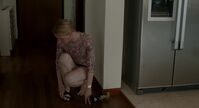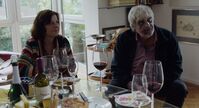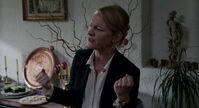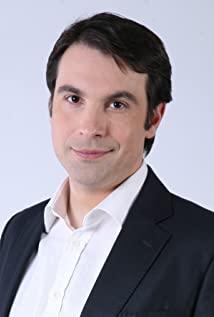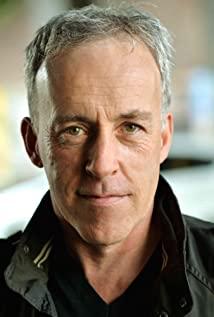Marlen Arder_Tony Erdman_2016
6.5
In Owen Goffman's Situational Interaction Theory, there is a methodology called the outlier experiment, which is used to examine people's reactions to breaking the rules of daily life. There are many specific cases, such as walking down the street and suddenly holding a stranger's hand, or like Voluntarily buy goods for three or four times the list price. Many hidden orders that are never made public in groups but tacitly known by individuals will be brought to the surface and put to the test. The focus of the results is often on the way society punishes exceptional behavior. Often, forced recipients of an experiment will share a similar confusion: Why would this person suddenly do such a thing when he is alive and well? But if you continue to ask the reasons for their doubts, the answer is likely to be just a stable habit formed during the socialization process.
"Every habit is a bad habit", this is one of the words recorded by the Duke of La Rochefoucault in the "Proverbs", and it is not without reason. In this film, it is especially suitable to decorate the entire bourgeois ecology. The members' thoughts and actions are as expected. Ines cannot live as a "person" in it, but can only play different "roles". The emergence of Tony Erdman is a shock to established social norms, making people no longer believe in what they should be.
Life may be like a rushing river - I don't know if I realized this or heard this sentence - but the world I live in is indeed more like a liquid, with a certain viscosity. Even if we sometimes listen to a Bob Dylan song and suddenly get hooked and decide we can't live like this, over time we'll follow the trend and even be lucky enough to be completely overwhelmed. The funniest thing is that people can only see the general appearance of this river when they jump out of it.
The daughter is not only living in the same river, her life is almost a well, and any extravagant things are enough to make her collapse. Suffering to live, why not euthanize? This question was raised at the very beginning, and it was solved at the very beginning. Unlike Yasujiro Ozu’s presupposition of Tokyo Story, the sense of distance in her father’s visit to her, Winfred is the initiator of this revolution in intimacy. He's visibly out of place in any space in Bucharest, and that's where those dry jokes come from.
There are many levels of father-daughter relationship, intergenerational, class, social norms, economic status, work and rest habits, of course, these also correspond to different clusters of Romanian society. The two love to use the high-level vocabulary often used in linguistics, Winfred uses "human", "life", "happiness", Ines uses "assessment", "internationalization", "thinking" Way". The father's role-playing can also correspond to the fact that a nanny is invited to play his daughter at the beginning, and he needs to forcibly play a person who can have a place in Ines's life to fill the gap between communication and interaction, that is, Tony Erdmann, a German ambassador who travels in a luxury Hummer.
Proving that Ines is Winfred's daughter is a no-brainer, because she's just as accustomed to acting as her father, and just as bad at it. Forced to make a living, she has to be courteous among the three religions and nine streams. These settings we can praise its neat, but also have to admit that they are tacky. As Tony Erdman dives into the life of Ines, the characters take on the strip-tease effect of the play and gradually decide to be honest with each other, which is made real by the final nude party. However, it is precisely this candor that makes the expression of the author of the film inadvertently more crude and cheap. What I find most embarrassing is not those episodes of Winfred's social ineptitude, but his final two closing remarks, which set the mood for the otherwise ambiguous text.
On the other hand, while humour has always been Winfred's means of sabotaging his daughter's forced life, "Tony Erdman" as a comedy would be boring to audiences. Wanting to be funny but not being funny and wanting to be serious but not serious are obviously one of the most popular. To be honest, I do personally prefer failure jokes to success jokes. The character of Winfred should, logically, be on point, because he's funny in everything he does, except when he's joking.
However, the formation process of this reverse comedy mechanism in this film is not satisfactory to me. It only shows deliberate but no surprise. Most of the comedy content is created by forcing people without social skills into interactive situations. The effects of very clever means are also terrible. As far as my perception and experience are concerned, it is not as interesting as a whole, and it is not even as funny as the Taiwanese translation of the title of the film "Die Father's Life"; there are only some partial comics, such as Winfred's dentures, such as when he smiles with his dentures exposed. looks like.
View more about Toni Erdmann reviews



